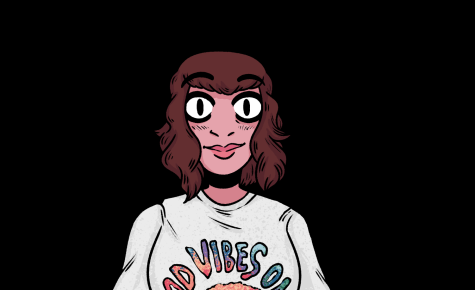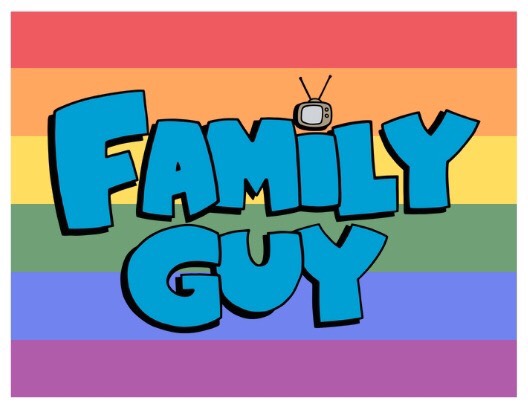Family Guy will no longer be making jokes around the LGBT community
The popular FOX adult animated series, Family Guy, is widely known for its edgy humor and often offensive subject manner, which has placed it under both critical admiration and constant backlash. However, it seems that the show’s staple of making fun of everything no matter how cruel seems to be changing with the growing sensitivity of the viewer. Recently, producers of the popular show have announced that they would no longer be including jokes targeted towards the LGBTQ community as they now consider these unacceptable for today’s audience. The decision has created a lot of controversy and divisive opinions, especially with our own staff.
Ben:
Family guy is known to be unapologetic when it comes to its satire. The show has poked fun at many controversial topics like race, gender, abortions, politics, 9/11, religion, and up until now, the LGBTQ community. To me, it makes absolutely no sense for the writers and producers of the show to stop making jokes about gay people. Whether you love the style of the show or you are greatly offended by it, this blatant act of stripping away the shows appeal only shows how sensitive our society has become. One thing that makes absolutely no sense to me is the fact that they are willing to take away one subject of comedy when they are continuing to do other subjects like race and gender, something they have been doing for years. I totally understand that LGBT rights are a larger issue in the grand scheme of things, especially in our current political climate, but when Family Guy goes by the mantra that no joke is off limits, which it has stuck by for nearly twenty years, it just doesn’t make sense in any way. If you really want to see how much Seth MacFarlane doesn’t care about political correctness, he was almost a passenger on the same airline that crashed into the twin towers, but he wasn’t able to make it because he was hungover. Despite almost dying during the infamous 9/11 attacks, he is still willing to make jokes that are centered around the event. So it is safe to assume that removing a certain subject of humor is not something he would approve of. Also, many people are under the assumption that whenever somebody is poking fun at a stereotype from a group of people, that makes them sexist or racist or homophobic. This is not true in the slightest. Family Guy is in no way trying to say “look at these gay people. They are so stupid and I hate them.” The jokes are meant to create comedy around an absurd generalization. In fact, the show has shown to be in favor of the LGBT community and has always tried to show that they are people. In an episode called “Family Gay”, Peter Griffin receives a medical drug that turns him gay. The doctor claims that this is to prove that homosexuality is not a choice and is something that is strictly genetic. While the episode was not the best executed, especially considering how they are making the argument that sexuality is not a choice when Peter willingly chooses to take the drug test that turns him gay, the heart was there. This proves that the Family Guy writers are more than accepting of the community and have made efforts to counterattack arguments made against them by homophobic groups. Plus, let us remember that one of the shows main characters, Stewie Griffin, is often hinted to be gay and most of his jokes revolve around trying to kill his mom. So I am under the opinion that removing these jokes has no logical basis and is a move only made to satisfy a public that should not be watching the show in the first place.
Kennedy:
This change is happening as the producers Alec Sulkin and Rich Appel found the climate of gay jokes unacceptable for current times. They also acknowledge that jokes on gay culture are something the producers and writers have grown away from. That in itself is not what I have a problem with. I personally believe that people grow and that jokes from a decade ago will not perfectly represent the staff’s beliefs now. With that said, I believe Family Guy has far more problems than making jokes on the LGBT community. I could reference tasteless jokes about ethnicity, sexuality, or gender identification, but I want to focus on the messages Family Guy presents their viewers. In ‘Seahorse Seashell Party”, Meg goes through a character arc of being abused, not wanting to be abused, to accepting abuse. A running gag on the show is crude humor inflicted on the daughter of Peter, Meg. After Meg calls out her family over their constant abuse, she tells Brian that the abuse is her purpose in life. This was not painted as a joke, not a single drop of sarcasm to be seen. It came off as the message of the episode. The message being that abuse victims have the purpose of serving abusers. That message is repulsive, and if the viewers hoped that the show would go back to laughable themes, they wouldn’t get that. The next episode aired of the show was, ‘Screams of Silence’. An episode that depicted Quagmire’s sister to be in an abusive relationship with her fiance, Jeff. This episode I first viewed as it aired, and unlike my father, I wasn’t laughing. I was dead silent when Quagmire told his sister it was her fault that she was too weak to leave the abusive relationship. There was no comedy or sarcasm. Just a brother telling his sister that she is the one to blame for being in an abusive relationship. The reason this episode upset me more than the previous was due to the character not having an established running gag. It could be easy to say that ‘Seahorse Seashell Party’ was a joke in itself because Meg is the punching bag, but Quagmire’s sister was brought on only to make a lesson known. This message Family Guy was putting upon their viewers made me reflect on why I would watch this show. I could go into first-hand accounts of abusive relationships I watched within my family, but I don’t have to in order to explain the mental state that traps a victim in abuse. All I ask is that if the Family Guy staff can reflect on how gay jokes are not appropriate for now of days audiences, then to also consider if the messages are, too. What makes you laugh is subjective, so not all comedy is for everyone, but a shows message shouldn’t be harmful towards anyone.

Ben Weiss is a senior perspectives editor and writer. It will be his second and last year on The Stampede. Other activities he’s involved in include...

Kennedy Homan is a person of many different problems. She likes ducks too much, she throws stuffed animals at people in school, and she has no social life...

Maddie Crabtree is a Senior and the Editor-in-Chief of Metea Media. She has been on staff for three years and has a huge passion for all things journalism....



Bob • Feb 7, 2019 at 8:36 am
Man, these people really don’t get family guy. The show is not supposed to be a story about good people. Even if family guy is insulting gay people, it wouldn’t matter, cause the show is not supposed to be a source of good role models. If people who are watching can’t get that, then they are probably not old enough.
kfc • Feb 5, 2019 at 1:24 pm
even as a fascist myself, this is going way to far
darkstripe • Feb 5, 2019 at 1:08 pm
“Satire is meant to ridicule power. If you are laughing at people who are hurting, it’s not satire, it’s bullying.” -Attributed to Terry Pratchett
anyway nobody cares about family guy tbh
Reilly Koyl • Jan 31, 2019 at 4:06 pm
The entire point of comedy is to push boundaries, if you take away an entire section of jokes that you can make, you allow other groups to chime in saying “well if you can’t say gay jokes, why can you say jokes about tragedies? Why can you say jokes about other races?” This is an extremely poor decision by them, as numerous other comedy shows like South Park are relentless in their delivery against all groups of people. If you have a problem with a joke that’s on the TV, then just don’t watch the program, go watch Teletubbies where your lack of self-control over a joke is complemented by the dull nothingness of baby program.
Grand Ayatollah Ruhollah Khomeini, Great Leader of Iran • Jan 29, 2019 at 12:45 pm
Even if this show made jokes about abuse that went to far, what does that have to do with the removal of LGBTQIAAPKD+ jokes? The author of the second response never showed any example of an LGBTQIAAPKD+ joke going too far, and the first author showed how the show actually supported the movement. Don´t get me wrong, America; I despise this unholy show, but even someone like myself sees when political correctness goes too far. Political correctness threatened my revolution after all, and it seems like it is threatening your society now as well.
Killian Kenny • Jan 29, 2019 at 10:25 am
Aw man, I always found the LGBTQ jokes to be (for the most part) funny; and being bisexual, I was able to have a harder laugh and think “It’s actually like that, sometimes!” to myself. I think it’s fun to be able to poke fun at one’s self, but I can see why they decided to move away from the gay jokes. And now, before I end this, let me share out an example of my favorite gay joke from Family guy.
*Peter is setting up the week’s cut-away gags*
Peter: Now where are the gays?
Regular ol’ gay: * raises hand* Over here 🙂
Peter: No, no, the really cartoony gays
Super toony colorful gay; Eyooohoooo!!! 😀
Peter: Good, good, we’re gonna need you all week.
Simpsons lover #1 • Jan 29, 2019 at 10:08 am
Seth MacFarlane was almost one of the victims of the 9/11 flight, but missed his flight because of a hangover he had the night before.
cow • Jan 29, 2019 at 9:17 am
“Twenty decades” Uh the show hasn’t been up for 200 years
person who is here • Jan 29, 2019 at 8:38 am
“To me, it makes absolutely no sense for the writers and producers of the show to stop making jokes about gay people.”
That’s gonna be a “yikes” from me dawg. I understand your point, but I have to question why you thought writing this article was a good idea in the first place.